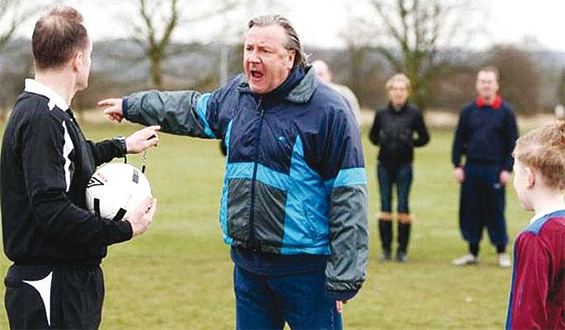
A report by the Sports and Fitness Industry Association has found that team sports participation is down by about 4% last year compared to 2009 and that 70% of young people stopped participating in organized sports by the time they were 13 years old.
Some experts think the drop is due to an increase in “elite” competition, which they define as parents putting the best child athletes on travel teams in order for them to become specialized and receive year-round training and more attention.
Dr. Steven Tobias, a psychologist and director of the Center for Child and Family Development in Morristown, New Jersey, says, in his opinion, the trend is not healthy. David Matthau, reporting for New Jersey 101.5 Radio, quotes Tobias as saying that sports are an important part of a child’s development because of physical well-being, being part of a team, and learning how to cooperate and get along with others. The lower numbers of children participating in sports means kids are also missing out on the fun.
Now, says Tobias, sports are increasing stress in some young people. He adds that there are parents who are pushing their kids to a point that is not healthy for them. Parents are beginning to see sports, in some cases, as a pathway to college scholarships and then into professional athletics. When parents begin to groom a child to become the next great pro athlete they are not allowing them to develop into who they want to be. When kids realize they are not on the special teams for advanced players, kids suffer.
“So a lot of kids are feeling rejected, a lot of kids are feeling not good enough, and I think unfortunately a lot of kids are being discouraged from engaging in physical activity,” he said.
It is difficult to know which children are going to be great athletes and which are not.
“Michael Jordan was cut from his high school basketball team,” Tobias said. “Its’ rare for kids to be very good and then continue on that trajectory.”
Kids do not have to be involved in organized sports to get exercise and have fun. Tobias tells children to go outside, hang out with friends, make up games, and resolve their own conflicts. Unstructured free play is the time when children can learn important social and emotional skills, he says, and these are the skills that are extremely necessary for a successful life.
Lindsay Powers, editorial director of Yahoo! Parenting, told ABC News that parents are getting competitive about their kids being number one in all they do and sports is just another area where this is taking place. A survey given by Amanda Joy Visek, an associate professor at George Washington University, asked 150 children what was fun about sports. Kids mostly agreed that it was team dynamics, trying hard, and learning. But on a list of 81 items that contributed to their happiness, the kids put “winning” at 48, reported Juju Chang, Kelly McKelvey, and Joanne Amato for Yahoo! News.
“Parents should take a step back and really listen to what their kids want,” said Powers. “For overly competitive parents, it’s never too late to make a change.”
The overemphasis on winning is what experts are blaming for the decline in sports participation. Julio Alberto Cachila, reporting for the Parent Herald, says the parental pressure to perform at the excellent level is another reason for the drop. NFL Commissioner Roger Goodell says the pressure from parents to excel in a specific sport might be the very thing that is affecting sports participation nationwide.
“I worry so much about putting pressure on kids that if you don’t commit to a sport by fourth or fifth grade, you’re out of luck,” said Commissioner Goodell. “There’s a lot of pressure we’re putting on our kids whether it’s coming from coaches, leagues, or parents.”
WTOP Radio in Washington, DC reports that the decline might also be because of the “shifted focus in the suburbs,” where less talented kids are put in recreational leagues with poor coaching.
There is also concern that kids who play football will suffer the long-term impact of concussions, causing some parents to keep their kids off the field.
There are also the kids who simply burn out from years of practice and competition and quit team sports by age 13.




